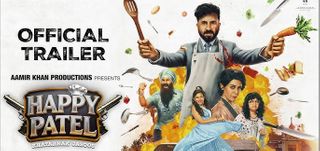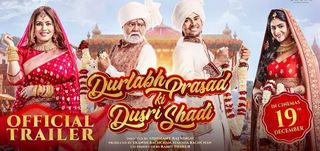
Hum Tum Movie Review
"And they lived unhappily ever after"....could well be the tag line to Kunal Kohli's engrossing take on the celluloid war which begins with a bang - in more ways than one - and ends with a sigh.
"Hum Tum" is a boy-meets-girl tale with no unexpected twists and turns. Its greatest USP is its disarming lack of guile.
Kohli nurtures his two protagonists' stormy relationship through several continents and a gigantic time zone that spawns more than a decade (though neither Saif nor Rani bring a change in their look or attitude, except maybe in Saif's hairstyle).
The epic design doesn't weigh down the basic levity of the romantic comedy.
And what we end up looking at isn't so much a celebration of universal love as two clumsy people grappling with the grammar of the emotion called love and who don't get the punctuations right. But director Kohli, whose earlier film "Mujhse Dosti Karoge" was clogged with incongruities, gets all the pauses and punctuations right.
He knows the man-woman relationship well enough to sketch a pungent comment on the oldest conundrum of civilization - What Do Women Want? - without resorting to farce or tragedy.
"Hum Tum" treads that titillating line between gender war and gentle romance.
If audiences are looking for an adventurous plot then they'll return empty handed from "Hum Tum". But if they're looking for mellow moments and romantic resonance, as projected into a querulous companionship spanning several seasons and songs strung together into a pop-symphony, then "Hum Tum" it is.
This is the visual version of the messages inside Valentine's Day cards.
Crisp comebacks, usually from the characteristically cocky Karan Kapoor give the central romance a cute and cutting edge. The wisdom applied to the romantic comedy might not strike as original or enlightening. But the universality of some of the film's basic theories on the man-woman axis - can a man and woman be just friends, is it as important to feel love as it
is to express it -isn't distorted by the film's cute packaging.
A lot of the romantic weight is obtained from Rani's performance. Just last week in "Yuva" she was a frumpy frustrated housewife. This week she's transformed into the chic though conservative woman of the world who clings to old-world values in the hope that the new-age wisdom won't blow them away.
The delicate equipoise between traditional Indian values and yuppie sensibilities have a way of working themselves out fluently and feelingly in Yash Chopras' productions. And so it is in "Hum Tum".
Take that sequence where Karan plays a game with Rhea where they pretend to be negotiating for an arranged marriage...the sequence's spatial harmony is a joy to behold.
It's the other love story between Karan Kapoor's estranged parents, played by Rishi Kapoor and Rati Agnihotri (hadn't they played an estranged couple in Rahul Rawail's "Kuch Khatti Kuch Meethi"?) which retards the flow of the Saif-Rani relationship. Did the film really need to span generations, continents and attitudes to bring the protagonists' together?
The progression from one frame of mime to another would've been smoother with a better music score.
Apart from a melodious title song, Jatin-Lalit's score disappoints deeply...or shall we say mildly, since depth isn't what "Hum Tum" seeks at any point of its narration. It aims to pin the modern man-woman relationship down to a purely pleasurable perspective.
As the incorrigible skirt-chaser and cartoonist Karan Kapoor, Saif spins out a web of wicked one-liners written by Kunal Kohli.
The comments on man-woman equations are innocuously misogynous. For example: "It's said that there's a woman behind every successful man...that's true because a woman would never run behind an unsuccessful man."
Unlike "Ek Hasina Thi" where Saif played against his own character, in "Hum Tum" he gets ample room to build on his trademark personality.



















